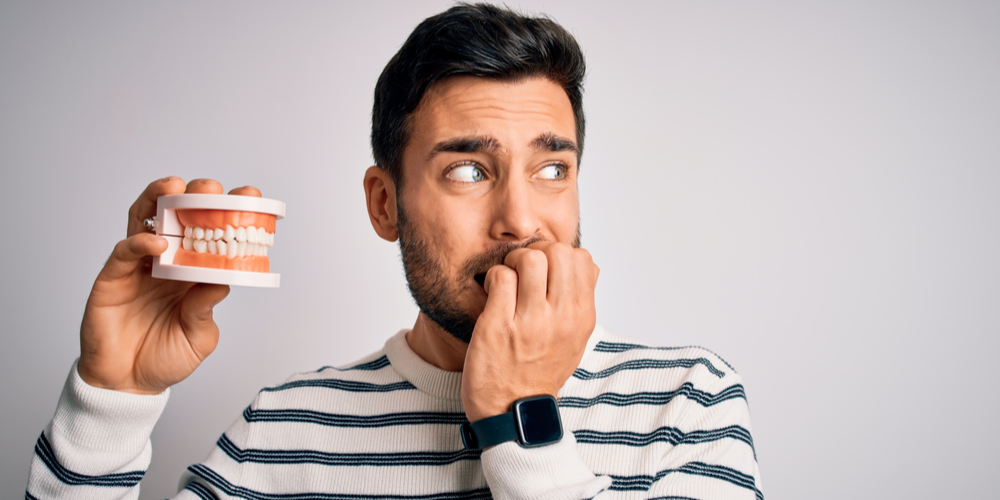
Crooked teeth are a problem that can be brought about by a range of circumstances, but the consequences are often the same. Many of these are outlined below:
Self-esteem and confidence
Crooked teeth affect the aesthetics of the smile and this can in turn affect the way people feel about their physical appearance. Studies show that the majority of people view their smile as their most important feature and, if you have crooked teeth, there is a high chance that you will feel self-conscious about the appearance of your teeth. If you feel uneasy about smiling in front of other people, this may affect the way you convey yourself and you may feel shy and withdrawn, which can influence the impression people create of you as a person. Treatment for crooked teeth can not only improve the appearance of the smile, but it can also make people feel a lot more confident about their looks.
Oral hygiene
Crooked teeth can make teeth cleaning more difficult, which may increase the risk of oral health problems, such as gingivitis, gum disease and tooth decay. As crooked teeth are harder to clean, bacteria, food deposits and plaque may start to collect around the teeth and this can make them vulnerable to damage and decay.
Malocclusion and problems with the bite
The relationship between the top and bottom teeth is known as the bite. Crooked teeth can affect the alignment of the upper and lower sets of teeth, thus causing bite misalignment. If the teeth do not fit together properly when the jaw is closed in a relaxed position, this means that there is a problem with the bite. If the bottom jaw is protruding and the lower set of teeth is further forward than the upper set of teeth, this is known as an underbite. If the upper jaw is protruding, this is known as an overbite.
Increased risk of tooth damage
Crooked teeth place increased pressure and strain on the jaw, muscles and teeth, which increases the risk of damage to the teeth.
Problems with chewing
Crooked teeth may affect your ability to chew properly, which can result in increased pressure on the jaw, teeth and facial muscles and make it difficult for you to eat chewy foods.
Social problems
As already mentioned, crooked teeth can affect self-esteem and confidence, but what was not mentioned is that this can also affect a person’s social life. Confidence is really important and it has a huge influence on the way you interact with other people and the choices you make. Studies have shown that people with good oral health are often more likely to succeed in their professional and social lives. Crooked teeth can also be the motive behind bullying for many, especially children; recent research carried out by specialist orthodontists showed that children who have crooked teeth are more likely to be bullied than children with straight teeth. Bullying is very serious and can have long-lasting implications for the individual, so finding a treatment to remove the cause of the bullying could be vital to stopping further suffering.

